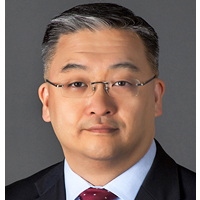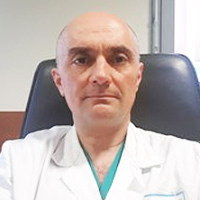Critical Management of Status Epilepticus
Published on: 14th March, 2017
OCLC Number/Unique Identifier: 7317652597
Seizure is clinical manifestation of sudden disruption of the normal electrical activity of cortical neurons. The brain electrical activity is periodically disturbed, alteration in neural cell integrity, increase in firing impulses and spread to adjacent normal neurons result in temporary brain dysfunction with alterations in consciousness, behavior or motor function. It may be triggered by illness, infection, stress, stroke, brain tumor, or the underlying cause may not completely understand. Status epilepticus (SE) is a medical emergency and requires prompt diagnosis and treatment. Treatment includes general support measures, drugs to suppress epileptic activity and relieving the underlying condition. Refractory SE requires admission to an intensive care unit (ICU) to allow adequate monitoring and support of respiratory, metabolic and hemodynamic functions and cerebral electrical activity. For SE treatment, benzodiazepines are the first line antiepileptic agents, and if benzodiazepines fail to control seizures, Phenytoin is usually indicated; Phenobarbital or Valproate may also be considered. For refractory SE, Propofol and Thiopental represent first line agents after careful assessment of potential risks. In refractory SE, general anesthesia may be required. There is currently no unique consensus for definite treatment option of RSE. In this review, the management protocol of seizure, assessment, monitoring, and different alternative therapy would be discussed.
Update on Phenobarbital for Alcohol Withdrawal Syndrome in Intensive Care
Published on: 22nd July, 2019
OCLC Number/Unique Identifier: 8206683605
Alcohol abuse is a global health problem. Alcohol withdrawal syndrome (AWS) ranges from mild to severe symptoms that can lead to fatal delirium tremens requiring ICU admission and incurring high health care cost as high as $20,000 a month. The latest published reports suggest that phenobarbital is a promising therapeutic option for management of AWS as evidenced by less ICU admissions, length of stay in hospital, use of adjunctive agents, health care costs and attention from the nursing staff than that of patients treated with commonly used benzodiazepines such as lorazepam, diazepam, and chlordiazepoxide. Phenobarbital is beneficial for the treatment of AWS, both in the emergency and inpatient settings and both as monotherapy or in conjunction with benzodiazepines. It is safe for patients without severe hepatic impairment, has a better mechanism of action and longer half-life than benzodiazepines, and leads to less delirium and agitation. Powered randomized controlled trials with large populations are required, yet phenobarbital can be used to safely to treat AWS.
Epilepsy due to Neurocysticercosis: Analysis of a Hospital Cohort
Published on: 24th September, 2020
OCLC Number/Unique Identifier: 8799421474
Introduction: Neurocysticercosis (NCC) is a common helminthic infection of the nervous system that occurs when humans become intermediate hosts in the life cycle of the pig tapeworm (Taenia solium) after ingesting its eggs. The objective of this study was to analyze socio-demographic, clinical and paraclinical features of patients with NCC in Lubumbashi, DRC.
Methods: This is a cross-sectional study conducted over a period of 2 years within the Neuropsychiatric Center of Lubumbashi. Socio-demographic, clinical, paraclinical and therapeutic features were studied.
Results: A total of 18 patients with NCC were listed. Epilepsy was found in 72.2% (13/18) of the cases. The mean age of the patients was 30.2 ± 13.5 years; males accounted for 61.2% of the cases. 84.6% were consumers of pork. Generalized epilepsy was found in 84.6% of the cases and hypereosinophilia in 38% of the cases. On the neuroimaging, the parietal location of lesions represented 92.3%; calcifications were the type of lesion in 53.8% of the cases and 69.2% of the cases presented lesions in the 4th evolutionary stage. Electroencephalogram was normal in 84.4% of the cases. Phenobarbital was the antiepileptic drug used in 69.3%; albendazole and prednisone were used in 53.9% of the cases.
Conclusion: This study shows that NCC is one of the causes of epilepsy in Lubumbashi. Generalized tonic-clonic seizures are the most common form of presentation and calcified parenchymal lesions are the most common radiological feature of NCC. So, any patient with acute onset of afebrile seizure should be screened for NCC provided other common causes been ruled out.
















